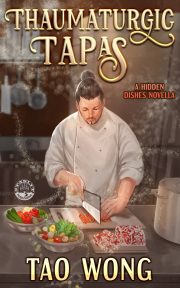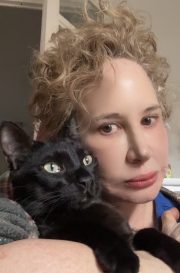ROMANCING SFF: When Making the Connection Makes the Book
by Claire Davon
I blame my reading habits on Dragonflight.
I’ve been a reader all my life, fueled by a wide collection of available books in the family home, coupled with repeated visits to the library. Though I started with the Nancy Drew series and mysteries, once I discovered science fiction and fantasy, I pivoted.
I consumed all the genre I could, from Piers Anthony to Roger Zelazny and everyone in between. At that time in Boston, a genre bookstore existed called The Science-Fantasy Bookstore, whose owner, Spike, recommended books to my brother and me. My enthusiastic mind gobbled them all up, always looking for the moment when two souls figured out their bond.
While I read and enjoyed such books as Edwin Abbott’s Flatland, Isaac Asimov’s Foundation, and hard science fiction, the ones that stayed with me were the ones that contained romance. What is Anne McCaffrey’s Dragonflight, if not a celebration of love? Not just between Lessa and F’lar, but between the riders and their dragons. That bond goes deep—a dragon goes between if their rider dies! The rider may survive in the reverse situation, but they are never the same. The fight between the two queens in Dragonquest, and its tragic outcome, broke my heart. On subsequent rereads, the trauma I feel is still the same. That deep connection gives the books their core strength and keeps me going back again and again.
So I searched for romance in other books, too. Even if it didn’t end well, a la Stephen Donaldson’s Thomas Covenant the Unbeliever, the romance was still a draw for me. Romance always has a place even in the most absurd of the Piers Anthony Xanth stories. It’s in Roger Zelazny’s Chronicles of Amber, and Ursula LeGuin’s Earthsea Trilogy, and of course, J.R.R. Tolkien’s Lord of the Rings. Sam and Frodo? I mean, come on. Going back to the ancients, The Epic of Gilgamesh has love in it—between Enkidu and Gilgamesh and between him and his goddess mother. Who doesn’t focus on the triangle between King Arthur, Guinevere, and Lancelot? The human need for connection started with oral tales and goes into today.
That preference for personal connection carries forward into my reading choices today. Guy Gavriel Kay’s lush prose echoes with all manner of personal relationships, from the exalted in A Song for Arbonne to the tragic in Tigana. Looking for romance doesn’t mean always seeking the happy ending. The number of times I’ve read the end of Tigana exceeds single digits, though that ending is bittersweet.
I’ve learned that love doesn’t always need to be romantic, either. With his incredible American Gods, Neil Gaiman sprinkles many kinds of love through the book, from Shadow and Laura’s doomed story to the bond between a son and his parents. Patricia McKillip’s lush prose oozes with emotion. I’ve searched for that profound connection in the books I read all of my life.
From when I was twelve and figuring out I liked the romantic bits in a novel, to today when I write them, love resonates. It is the fulcrum around which so many plot points pivot. It decides people’s actions and propels their character forward. When I sit down to write a story, no matter the genre, one of my first considerations is the characters’ personal interactions, because I know that’s what will hook the reader. How does the relationship between the protagonist and the other characters shape what they do?
Whether love is a primary driver, as in my fantasy romance, or almost nonexistent, that struggle for human contact permeates what I write. It may be as simple as a brother helping his sister or a man being lured to his doom by his interest in a woman, and not the great One True Love between our protagonist and their soulmate. From the strong friendship between Royce and Hadrian in Michael J. Sullivan’s The Riyria Revelations Series, to the wisecracking pair of Fritz Leiber’s Fafhrd and the Gray Mouser, friendly love resonates through much of fantasy. Caraval by Stephanie Garber features a sibling bond that is so strong, the heroine braves everything to help her sister. The romance in that book is engrossing, but the sister connection takes it to the next level.
Romance is what drives my plots, but in the end, love is love. That such an unbreakable connection exists in the work is what resonates when the reader closes the book.

USA Today bestselling author Claire Davon has written for most of her life, starting with fan fiction when she was very young. She writes across a wide range of genres, and does not consider any of it off limits. Her novels can be found in the paranormal romance and contemporary romance sections, while her short stories run the gamut. If a story calls to her, she will write it. She currently lives in Los Angeles and spends her free time writing novels and short stories, as well as doing animal rescue and enjoying the sunshine. Claire’s website is www.clairedavon.com.



